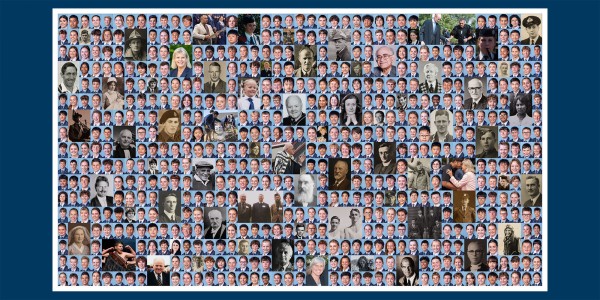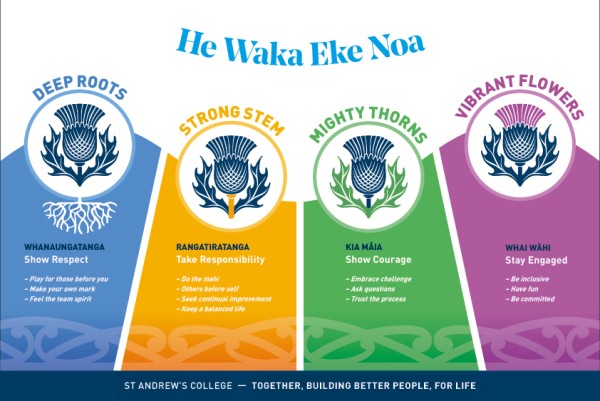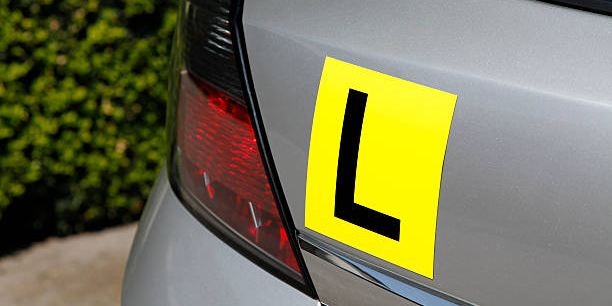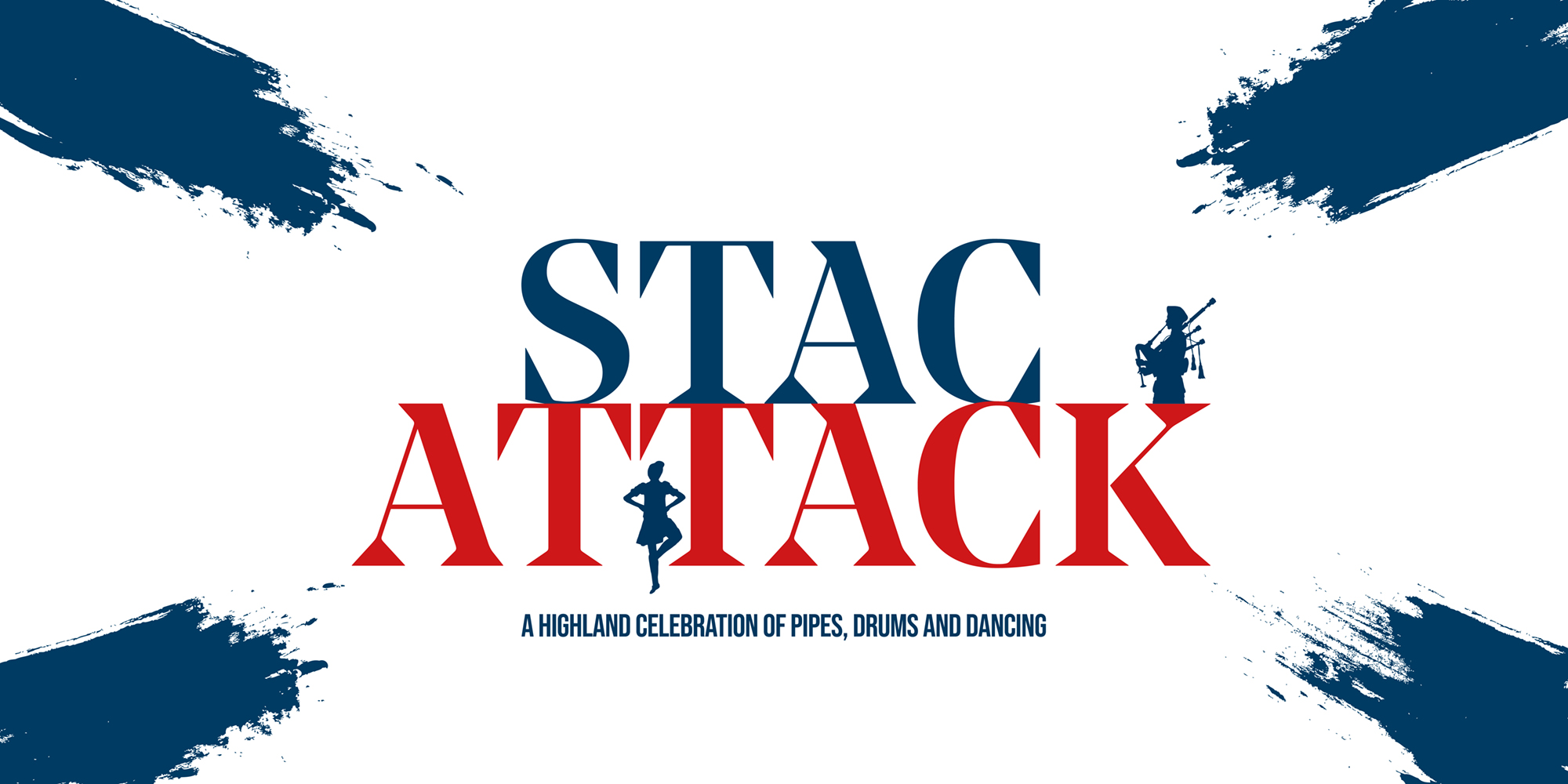
You are logged in as
Logout
You are logged in as
Logout
"While we are all living our individual lives and pursuing our personal goals, there is also much happening in our school which brings us closer together with a shared sense of purpose and connection."
Dear Parents and Caregivers
Inā kei te mōhio koe ko wai koe,
I anga mai koe i hea, kei te mōhio koe,
Kei te anga atu ki hea.If you know who you are and where you are from,
then you will know where you are going.
The last five weeks have been busy and varied across many areas of the College. While we are all living our individual lives and pursuing our personal goals, there is also much happening in our school which brings us closer together with a shared sense of purpose and connection.
Our students have their own interests, passions and learning programmes. By the time our Year 13 students are readying themselves to leave school they may have developed interests in Tourism and Hospitality, History and Classics, Mathematics and Sciences, Agricultural Services, Technology and Digital Information, Commerce and Economics, the Science of Sport and Well-being, or perhaps Creative Arts and Performance. Everyone is on their own development journey. But a successful school is so much more than this.
As we gather in Centennial Chapel to hear a shared message from our Chaplaincy team or student Community Service leaders, listen to a guest speaker in assembly, gather as a staff to review progress against a whole school goal, or reflect upon our school values in action, we are reminded how we are part of something so much bigger than ourselves.
The recent Black and Bling Ball brought together parents of students from Years 1–13, past parents, Old Collegians, and staff with a sense of community spirit. The opening of the new Ngā Toi Performing Arts Centre generated a collected sense of pride in the realisation of a dream in adding a new facility for present and future students, showcasing an incredibly talented group in the production of Legally Blonde. Our assembly last week recognised sporting achievements from a wide range of sporting codes, which collectively contribute to our regional and national St Andrew’s College profile. These are the things that year upon year create our collective story and sense of belonging. Our stories from our past give us a perspective on our present, and a path to our future.
Last week while in Dunedin, I took the opportunity to meet with a group of 30 Old Collegians all studying at Otago University. The oldest of them were graduates of St Andrew’s in 2018 and the youngest left last year. Their tertiary courses ranged from studying Medicine, Commerce, Music, Psychology, Law, Physiotherapy, and Sports Science. My memories of these students at StAC were of young people making the most of the co-curricular programmes alongside their studies as community service or sustainability leaders, members of choir, orchestra, jazz groups or production, competitive netball, rugby, rowing, hockey or football players, or participants in the Ballet Academy or dance groups. All of them impressed as young people of strong character with self-discipline, self-belief, and a desire to connect with others. They also expressed a sense of gratitude for connection to where they had come from.
It is our shared experiences and stories which bring us together and continue to connect us long after we leave.
He waka eke noa.
Christine Leighton
Rector


It appears that winter arrived a little early this year. It has been unseasonably cold, especially noticeable at the sports venues. The usual frosts followed by lots of sun and clear blue skies seem to still be on its way.
The long-awaited opening of Ngā Toi at the beginning of the term allowed us to have a whole school assembly in Gym 1, the last one occurring at the end of 2021. Other than acknowledging and celebrating student success the Heads of College and I had the opportunity to start introducing the new StAC Sports Framework. St Andrew’s College has proudly embraced the Sport New Zealand ‘Balance is Better’ philosophy, prioritising the well-being and development of every participant. This framework serves as our overarching strategy, uniting all stakeholders under its principles, emphasising increased participation and skill enhancement. Symbolised by our Thistle, our goal is to harmonise the ethos of sports with the school’s mission of ‘Together, building better people, for life’. Embedded in the College’s culture is the whakataukī, He waka eke noa, symbolising the collective efforts of students, coaches, teachers, parents, and the community. Together, we strive to uphold the values of our school with authenticity, pride, and dignity. Meg Simpson, our Head Prefect, spoke about the ‘Deep Roots’ dimension of the framework from a student perspective. Her message focused on how we create respect and a sense of whanaungatanga through shared experiences and working together, and providing people with a sense of belonging and how it also comes with rights and obligations. The other three Heads of College will present on the other three dimensions later in the year.


I would like to thank Tom Matthews and his well-being team for their continued effort into setting up StAC Talks for parents. Two weeks ago, we had sleep specialist, Dr Kelly Dale, speaking about sleep and the teenager. Dr Dale outlined how this is a challenging area for our teens, with 41% of our Secondary School students reporting that they are not getting enough sleep. Dr Dale kindly allowed us to record her and has made the video available for the next few weeks. I strongly encourage you to find 10 minutes to watch the summary video at the very least, and we have also included the full recording of the event for those who may wish for more in-depth information.
StACTalks Sleep Session Summary >
StACTalks Sleep Full Recording >
Supporting our players on the sideline is a highlight of my job, as it not only allows me to see the students taking part in something they are passionate about, but also gives me an opportunity to meet parents. Our co-curricular programme continues to be a cornerstone of the St Andrew’s College educational experience. I acknowledge and thank the sport co-ordinators, coaches, managers, and all the support people for the enormous amount of time and energy they have invested in preparing our teams for the winter season. St Andrew’s students are extraordinarily lucky to have so many people support and invest in them.
Thank you also to the parents for your unwavering support of both your child and the College. We appreciate everything you do in the background. I would also like to thank a group of people who rarely get acknowledged and they are the referees. It would be fair to say that their job is often thankless, if they do a good job, no one notices. So, thank you to the referees on behalf of all of us.
This has also been a very busy term for our performing arts students; the highly acclaimed Senior College production of Legally Blonde, and special concerts where our student singers and musicians were able to showcase their talents. Moreover, our musicians and singers are spending huge amounts of time preparing for their respective Chamber Music and Big Sing competitions.
Later this term you will receive the first set of reports. Your child’s teachers have spent a considerable amount of time into giving feedback on what is going well and what the next steps need to be. Can I please encourage you to have a conversation with your child on how they may learn from the feedback and where appropriate make some changes. On the last day of term, we will be holding our Teacher-Parent-Student subject interviews for our boarding community. On the first Tuesday of next term, we will hold our very popular Parent-Tutor-Student Conferences.
The drop-off zone continues to be extremely busy in the morning and especially after school when the weather is cold and wet. To reduce the traffic issues experienced at these times can I ask you to park down the road or down one of the side roads and arrange to meet your child there.
The presentation and appearance of our students continues to be very important as it remains a statement about who we are and the pride we all have in being a member of the St Andrew’s community. I have been very pleased and delighted with the way most students continue to wear their uniform at school, however, please remind your child that they must wear their school uniform, including their blazer, when they leave the school grounds. Special exemption might be given to students on a Wednesday afternoon if they are off to play sport. Please click on the following links for our uniform expectations
Middle School Uniform >
Senior College Uniform >
Evert van Florenstein
Head of Secondary School
JUNE
7 Big Sing, Town Hall
10 Timaru Boys' High School Sports Exchange
11 Junior Festival of the Spoken Word, Centennial Chapel
11 StACTalks Sport, Centennial Chapel, 6.30pm
15 Semi-formal, Riccarton Raceway
18 Boarders’ Chapel Service, Centennial Chapel, 7.45pm
19 Festival of the Spoken Word, The Green Library and Innovation Centre, 6.00pm
21 Prefects' Assembly
28 Matariki (College closed)
JULY
5 End of Term 2
22 Staff Professional Development Day
23 Start of Term 3
28 StAC Attack, James Hay Theatre, 5.00pm
Please view the fixtures on the College intranet for more upcoming events. The intranet is updated daily.

During the first five weeks of Term 2, Rev. Paul Morrow has been away from the College on leave, so I have had the opportunity to fill in for him as Acting Chaplain during this time. Our Centennial Chapel is such a treasured and central part of our College, and it has been a privilege to be involved with the different services and functions that happen there regularly. The past five weeks have gone by fast and have given me a greater insight into various aspects of the Centennial Chapel, I probably hadn’t fully appreciated until now.
For instance, I have come to fully appreciate the different groups of people that allow chapel to operate each week. From sacristans to musical groups, prefects and Middle School Leaders who serve the College in this area. The thing I noticed about these young people; is the humility they display as they serve each week. C S Lewis once said that “humility is not thinking less of yourself but thinking of yourself less”. There is nothing glamorous about working behind the scenes and doing roles that you may not get credit for. Putting out chairs, ushering and cleaning up afterwards, are examples of these roles. However, I believe humility is the foundation on which all good things are built on. Being willing to serve out of the spotlight in a faithful way, will prepare students to be servant focused leaders in the future. In a world that often promotes bold, attention seeking leaders, I hope that the seeds of servanthood sown at the College now, will see young people who make a genuine difference in their communities in the future.
Speaking of serving others, during the last five weeks I have also seen the Community Services team rally behind one of our primary charities, World Vision. The team attended a World Vision leadership day (focused on climate injustice) and has already started to implement their ideas and plans to promote and fundraise for this wonderful cause. The 40-hour Challenge is a central part of these efforts, so please support your young people in getting involved in some of these activities coming up. It really is encouraging to see our students look beyond themselves, see the needs in the world around them, then choose to take action. May we continued to be inspired by the passion of our young people, to see positive change in the world around us. I feel encouraged by the hope they carry and willingness they show to reach out.
Ben Hughes
Assistant Chaplain

As we come to the halfway mark of a busy term, this time of year does provide its challenges. The days are shorter, the weather is colder, and things ramp up in terms of curricular and co-curricular requirements. It is important that we encourage all students to continue to strive to be their best and make positive decisions that is best for them and those around them. How they manage themselves and prioritise their many commitments is key moving forward
So far this term, I have been impressed by the effort and behaviour of Middle School students who are, on the whole, fully engaged and working hard. I would like to take a moment to acknowledge our staff, in particular our wonderful Middle School Deans. James Jenkinson, Liz Gormack and Lucy Curtis have worked tirelessly to ensure that students’ learning and well-being are in a good place here at St Andrew’s College. This includes linking up with students isolating at home and when they return to school. With the support of Tom Matthews and his Guidance team, I feel that we have the vast majority of students feeling happy and taking on the many opportunities of College life.
Congratulations to all students involved in Legally Blonde but especially Year 11 students engaged behind the scenes and on the stage in their first Senior Production. I loved seeing this wonderful performance in our amazing new space of Ngā Toi.
With winter sport now well under way, it has been great getting out to see our teams in action. I have been incredibly impressed by Middle School students who have made their way into first teams in rugby, basketball, netball, hockey, football, and more. It is wonderful to see young athletes given opportunities to test themselves at the highest school level.
Matt Parr
Head of Middle School

This will be taking place next term. Details will be coming out very shortly.
Please note that camp is compulsory for all students and a key part of the St Andrew’s College curriculum.
This is always a special occasion for the Year 11 students and one that is met with high anticipation. The date is confirmed as Saturday 15 June at Riccarton Park Raceway. Year 11 families will by now have received information and booked tickets. Our Middle School Leader team have put some great effort into preparing the venue with the theme of ‘Casino’ for what should be a great night.
By the end of this term, you will be receiving your child’s mid-year report. I would encourage you to have a look through the report with your child and celebrate their successes and work through their challenges. In tutor time later this term, students will be working through some goal-setting tasks, using the WOOP model (Wish, Outcome, Obstacle, Plan). Students will focus on a learning goal and a well-being goal. This will then be presented at the Tutor Conferences at the beginning of next term. These will be taking place on Tuesday 23 July. This is an opportunity to touch base with your child’s tutor and discuss how the year is tracking so far. Preparation for these conferences will be completed during tutor time in the last few weeks of this term, as mentioned above.
In Week 8, Year 10 students will be completing two days of alternative activities. They will complete their Red Cross First Aid course, participate in a Science Day Out and complete some community service through some tree planting in the Red Zone. This is a great opportunity to learn the fundamentals around First Aid, gain some community service hours towards their Bronze Duke of Edinburgh Award, and experience Science outside the classroom.
Now is also a good opportunity to remind everyone of our expectations around phone use by reminding you of our StAC Unplugged policy. Click here to view in full.
Guidelines
St Andrew's College Middle School students will not be allowed to access their mobile phone between 8.25am and 3.20pm during the school day. Students will be expected to have mobile phones turned off and, in their bag, or locker. The exceptions to this are:
Students who are seen using their mobile phones outside of the above parameters will have it confiscated for the remainder of day and will be issued with a consequence. Students can then collect their mobile phone from the Middle School Office at the conclusion of the school day.
The College recognises that emergencies can occur and that in these situations there needs to be communication opportunities between students and parents and caregivers. Therefore, students may carry their mobile phone, turned off, in their bags.

Chewing gum
There has been a noticeable increase in students chewing gum. While this is great for dental hygiene, gum is not allowed at school, and certainly not in class or other formal settings. Student’s may be issued with a consequence, and this will become a focus for staff.
Hair and grooming
I am pleased to report that there seems to have been fantastic compliance and general adherence to these expectations. Long may this continue as it saves negative interactions which nobody particularly enjoys.
Kia ora koutou
Year 13 Focus runs during Period 1 every Monday morning. It’s a key part of our Senior College aim to prepare our students for life beyond school. We want to expose our young people to a range of speakers and information about careers, tertiary pathways, and also some of what life ‘outside the bubble’ looks like. This translates to a wide range of speakers and information designed to get our seniors thinking about the world and how they might fit into it.
Each Monday morning begins with notices and information about careers events and opportunities from our Careers Counsellor, Richard Webster. There’s always some other admin that needs to be covered as well, but the key part of the hour is most often spent with a guest speaker. So far this year, we’ve heard from a range of inspiring guests, including:
Later this term we will meet Kate Russell (Executive Director of Hagar International New Zealand), Allan Moulai (Industry Engagement Lead, Aviation and Airport Services, Ringa Hora), and Bridget Ford (concussion expert at The Headache Clinic).
Each speaker is invited to talk about their own career path, so that students get a sense of the range of pathways that are available, as well as the fact that things don’t often happen in straight lines. It’s inspiring to hear stories about how our guests have ended up in their current roles, and to see how experience, qualifications, and serendipity combine to shape what happens over the years.
Sometimes Monday morning seems to be a difficult time to try and inspire our young people (!), but there are always a few who linger behind to ask questions, or who come for a conversation in the days after each speaker to ask about how they can explore different career paths as a result of what they have heard. Like a lot of our teaching, it is about sowing seeds, and the Focus programme is an important part of that process.
I hope you can make an opportunity to have a chat with your child about one or more of our speakers who might have inspired or challenged them this year. The more conversations we can have with our young people, the wider their horizons will stretch.
Ngā mihi nui ki a koutou
John Ruge
Head of Senior College

…to all of our student leaders for their work so far this year, in the midst of challenges, workloads, commitments, and life in general. We have appreciated some excellent work from our Prefect team, Senior College Council, Academic Captains, Cultural Captains, Sports Council, Community Service team, and a number of other leadership groups.
The Formal will be held at the end of Week 2 next term, and the Senior College Council have been working very hard to organise what promises to be an amazing evening. A quick update about logistics and expectations for the evening:
The College does not endorse any pre- or post-Formal functions. Where they do occur, we expect that all functions are by invitation only and are hosted and supervised by responsible adults. If you intend to hold a function it would be helpful if you could email Head of Senior College, John Ruge, at JRU@stac.school.nz to let him know the details.
.
If your son or daughter drives to school, either regularly or intermittently, then they must register their vehicle with the office. This is regardless of whether the student owns the car. We have had several instances this year where we have been able to help students avoid a flat battery or being towed because they had registered a vehicle with us. Please note that:
Thank you for your help with this.
Our annual Prefects’ Assembly will be on Friday 21 June. The team have been working incredibly hard to script and rehearse this event, and it should be a great celebration of this team’s creativity. The assembly starts at 8.30am in Gym 1, and parents and whānau are welcome to join us.

Please avoid scheduling driving lessons during the school day. We understand that licence tests may have to be done during class time, but ordinary lessons should be planned for out of school time.
Reports for Years 12 and 13 will be available for you to access online later this term.
This is one of the most important communications between the College, parents, and students. The report will convey information about learning, progress, achievement, and will offer advice for improvements. If you have any concerns then there are a number of staff who can be contacted including your child’s tutor, classroom teacher, the relevant Dean, or Head of Senior College, John Ruge.
The majority of our students wear their uniform correctly and with pride. Thank you for the part you play in helping them to do this.
To clarify our requirements:
For the most part we deal with senior students themselves in relation to uniform expectations. If we do need to contact you about an issue we appreciate your support in helping us to maintain the high standard that we expect here at St Andrew's.
With the winter sports season now upon us this is a good time to remind everyone of our expectations around the sporting conduct for players and spectators. It is important that, as parents, we all continue to role model the sporting behaviour we want from students particularly around the area of respecting the officials and keeping the game in context. If we all work together and make sure that we adhere to the following expectations, then St Andrew’s will set the standard for other schools to follow.
Expectations of our parent community
I would ask you as parents to also talk to your child around the following expectations that the College has of them. While we always try and reinforce these expectations during trainings and at matches, having you back this up would help a lot.
Expectations of our students
Mark Lane
Director of Sport and Cultural Activities

(An article from ‘The Balance is Better’)
Being a parent-coach presents a unique set of challenges. Coaching is all about relationships, but sometimes the relationship between a parent and child poses different demands to that of an athlete and their coach. Balancing both can be difficult – particularly in team environments, where we must strive to be fair not only to ourselves and our child, but to their teammates. But there are ways to navigate this pathway and be an effective and impartial parent-coach.
Below, we present five tips for successfully coaching your own child.
Perhaps the hardest part of being a parent-coach is needing to have two different, completely separate relationships with your child. To be an effective coach to your child (and a fair coach to their teammates), you cannot be their parent at practice or on gameday. And to be a good parent, you must endeavour not to bring your coaching home with you.
Disconnecting these two distinct relationships can be immensely challenging, but there are a few practical tips to help you separate the roles of parent and coach:
Another significant challenge for parent-coaches can be managing a wide range of different expectations – primarily those of their child, their child’s teammates, other parents, and their own. As coaches, we must understand the many competing interests and concerns held by the various stakeholders involved in our team and strive to ensure that everyone feels valued and acknowledged.
Managing our child’s expectations, and those of their teammates, can be a delicate balancing act. While, at home, our child may be used to receiving the majority of our attention, at training and on gameday we must treat all of our athletes equally.
Once again, though we must be careful to avoid perceptions of favouritism towards our own child, it’s also important that we don’t overcompensate and be overly harsh in our treatment of them or overlook them when their behaviours or actions merit positive attention.
This can be a difficult line to tread; if we’re too ‘easy’ on our child, their teammates may notice and resent it; but if we’re unjustifiably hard on them, they may struggle to understand our behaviour, or feel like they’ve been treated unfairly or neglected.
Similarly, we must be consistent in how we treat our child when they exhibit negative behaviour. It’s likely that our response when they misbehave at home is different to that when one of our athletes breaks the rules at training. But when our child misbehaves in front of their coach – whether at training or on gameday – they must be treated the same as their teammates.
In these instances, it could help to receive a second opinion, perhaps from an assistant coach or another parent, to help us determine if how we treat our child is consistent with the way we treat other athletes on our team. This fairness and consistency is integral to adequately managing the expectations of our child and their teammates.
Managing the expectations of other parents can be equally tricky. Some parents will also be looking for signs of preferential treatment towards our own child – perhaps in how we allocate the team captaincy, award Player of the Match, or give extra responsibilities (such as running warm-ups) to members of our team – once again making it vital that we’re consistent in how we treat our athletes.
Furthermore, many parents will likely take a keen interest in how we resolve behavioural problems on our team. While our approach to misbehaviour may be rooted in our parenting style away from sport, it’s possible that other parents will have their own parenting styles, and thus their own ideas regarding how to address misbehaviour in a sporting environment.
Again, we must strike a balance; while we should be open-minded, and not stubbornly assert that our own approach must be right, we should also set boundaries, and help parents to understand that interfering in practice or on gameday will likely diminish the sporting experience enjoyed by their children.
Here, it could be helpful to work with our athletes to establish a set of team rules and behaviours at the start of each season. This will provide a framework for athletes to hold each other to account, help us to be consistent in upholding team standards, and provide a set of guidelines to share with parents so that they understand our team processes and feel included in them.
In managing our own expectations, we must strive to focus on the process, not the outcome. Of course, we want our child to perform to the best of their ability, but our priorities should be to help them enjoy playing sport and develop, not ensure that they achieve certain results on gameday, win competitions, or become a professional athlete.
Social comparison and premature professionalism are seeping further into youth sports, and this can have a profound impact on how children perceive themselves and the way they participate. As parents and coaches, our own attitudes and behaviours can either reinforce anxieties surrounding performance or help to reassure kids that the process is what really matters.
Effective ways to help alleviate the psychological impact of expectation include:
We must also be careful not to view our child’s sporting activities as an investment (in terms of either time or money) or tie our own sense of worth to their sporting success. This will, in turn, help us to remain calm and unemotional when regulating our expectations.
As parent-coaches, we have a unique responsibility to try not to become too emotionally invested; offer support without becoming a distraction; and set a good example for the other parents around us. If we set positive standards, we can work with others to uphold them.
Intrusive sideline behaviour is a common sight in youth sports. It’s natural for both parents and coaches, caught up in the emotion of supporting their children and athletes, to issue outpourings of encouragement and instructions – but it’s rarely productive, and can often rob young athletes of their focus.
Just imagine attempting a task while a crowd of onlookers unremittingly shouts advice and instructions, some of it contradictory; that’s not an environment conducive to learning, concentrating, or performing to the best of your ability. Yet we constantly subject children to this very scenario.
In the long run, these sideline interventions can harm athletes’ problem-solving and decision-making skills, diminish their creativity, negatively impact their motivation and enjoyment of the sport, and increase the pressure and anxiety they feel while participating.
The way we allocate playing time can be particularly challenging when we coach our own child. Children often want to participate as much as possible and can feel disappointed when they aren’t picked in the starting lineup or don’t play as many minutes as they’d like on gameday. And this disappointment can be heightened if an individual feels like they’ve played less than they deserve because our child has received preferential treatment – or if our child feels like they’ve played less than they deserve because their coach (and parent) has treated them differently to their teammates.
Allocating playing time so that every athlete on our team feels valued and receives adequate opportunities to learn and participate is obviously essential. But even when we do this, teammates, parents, or even our own child might perceive that we have done this unfairly.
A simple way to minimise frustration or disappointment is to establish a clear team policy on playing time. In grassroots settings where the primary aim is to participate, learn, and have fun, we may adopt a policy of equal playing time for all. If we wish to make our environment slightly more challenging, we might simply opt for a minimum amount of playing time for each participant. If our athletes are older and driven to achieve certain outcomes, such as winning a competition, we might consult with them to establish a policy on playing time and find that they prefer a team selection based on merit.
No matter what our policy is, the key is having a clear idea of how, and why, we select our teams and rotate our athletes on gameday, and then staying true to our approach.
Consider how you might involve other parents, the team manager, or the assistant coach in selecting things like the Player of the Day and team captain. Getting other parents involved in the process takes the pressure off you and is a good way of involving parents in the team environment – just make sure they are selecting based on some agreed principles, such as effort or showing good sportspersonship, rather than simply picking the ‘best player’.
Team talks and debriefs provide valuable opportunities to frame objectives, assess what happened in the game, and facilitate self-reflection – encouraging athletes to think about their performance and helping them to become better learners.
And while we’ll probably feel more comfortable talking directly and candidly with our own child, we should consider the tone we use when talking to them in front of the wider team. Obviously, team talks should not be an occasion for us to criticise our athletes or point out their faults.
As parents who want the best for our children, it can be easy to inadvertently slip into the habit of over-coaching. This can be detrimental not only to our child’s development, but to their motivation to participate in the sport.
According to Positive Psychology expert, Lara Mossman, coaches usually fall into two categories:
and
Athletes working with autonomy supportive coaches usually feel a greater sense of control over their own development, are more intrinsically motivated to learn, and take more enjoyment from their sport.
But, while we may strive to adopt an autonomy supportive approach – it might even be our natural coaching style – we might find that our manner changes when we interact with our own child; perhaps we become more controlling, maybe without intending to or even realising it.
So, we should not only be conscious of the type of coach we are, and how we motivate our players; we must be self-aware, consistent in our approach, and ensure that we always treat our child the same as their teammates.
If we’re mindful of our coaching and motivational style, and how we work with our child, we can even make our relationship with them a strength; we have far greater knowledge about them and their context – the myriad socio-cultural factors that affect how they learn and what motivates them – than an ordinary coach would have. This information should make it even easier to challenge and empower them and guide them in directions in which they’ll feel compelled to learn on their own. Of course, remembering the importance of managing our expectations, we must also be careful not to be too hard on our child when seeking the best ways to motivate them.
This appreciation of the motivational benefits attributed to knowing our own could, in turn, be considered an endorsement of the athlete-centred approach to coaching. A fundamental component of athlete-centred coaching is getting to know the athletes we work with as people in order to individualise our approach. This means learning about the same socio-cultural factors – things like their home and school life, family and social relationships, and the other hobbies they engage in – that we know about our own child, so that we can tailor the way we coach and interact with them to suit their individual needs.
In this case, endeavouring to treat our child the same way we treat their teammates requires us to go further in getting to know the athletes on our team. And this will make us a better all-round coach.
Finally, our child’s primary recreational and sporting pursuits should not be dictated by which ones we happen to coach; we must give our children room to make their own choices by providing opportunities to experience other sports and hobbies and letting them choose which ones to devote their time to.
This means encouraging our children to engage in a variety of activities – particularly in sport, where increasing evidence shows that a multisport approach helps them to develop more well-rounded movement skills and transferable technical skills, and also avoid overuse injuries and burnout.
Furthermore, we should strive to let our child be themselves within our coaching environment. Sport provides great opportunities for children to experiment, express themselves, and develop their identity, but this may be difficult if they feel like their parent is constantly watching over them. Perhaps take a step back where possible – maybe during drinks breaks, or pre- and post-training, when they’re socialising with their teammates – or encourage your assistant coach to work with them more (if you’re fortunate enough to have one), so that they regularly interact with a coach besides you.
A few small, simple adjustments like this can have a huge impact on how free they feel, and give them invaluable space to develop skills, build relationships, and form their personality within the team.
After all, the primary purpose of youth sport is to have fun and fall in love with physical activity. It can only achieve that if we empower children to pursue the activities that they’re passionate about, give them the space to develop on their own, and allow them to participate with freedom.
The Canterbury Drummers Club are hosting the third annual Ōtautahi Solo Drumming Championship on Saturday 29 June. Many of our Pipe Band drumming students will be competing.
This is the largest solo drumming event in New Zealand and this year’s event will run alongside the Royal Scottish Pipe Band Association Oceania Solo Drumming Championship event that is being hosted by the Royal New Zealand Pipe Band Association with two qualifying positions available at the semi-finals of the World Solo Drumming Championships in Glasgow this October – the first time a qualifying event has been held in the Southern Hemisphere! There is also an event for Juvenile Section 5 which is for 16 to 18-year-old drummers.
The Highland Piping Society of Canterbury will host their second indoor solo piping competition of the year on Sunday 30 June.
Experience the thrilling sounds of StAC Attack 2024! A St Andrew’s College Pipe Band event at the prestigious Christchurch Town Hall – James Hay Theatre, this highly anticipated showcase guarantees an unforgettable evening of traditional Scottish entertainment.
Immerse yourself in the rich harmonics of the bagpipes, the infectious beat of the drums, and the flair of the Highland dancers as they take the stage. With talented St Andrew's College students from Years 4–13 displaying their skills, StAC Attack promises to be an action-packed performance.
Be a part of the magic at StAC Attack 2024!
When: Sunday 28 July 2024
Time: 5.00pm – 7.00pm
Venue: Christchurch Town Hall, James Hay Theatre
Tickets: Adults $49.00, students/children $29.00 (student ID may be requested).

It's a very busy time in the music department at the moment. The choral students are participating in the Big Sing this week. Next week sees the ten chamber groups competing at the New Zealand Chamber Music Competition. Finally, the Jazz Combo are getting ready for their upcoming competition too.
We wish all our musicians well as they complete the final preparations for these events
We had eight bands perform at the RockQuest heats last Saturday. All groups from Years 9-13 performed well and were very supportive of each other. Congratulations to E.C.H.O. and the Year 13 band Awethentix* who have made it through to the regional finals.
|
7 June |
Big Sing Regionals |
Town Hall |
Staccoro, VOX 16 and Stacchorus. Please note the Gala concert on Friday night 6.00pm-9.30pm. All students need to be available for this. Heats are at 9.15am (Stacchorus) and 11:45am (Staccoro) |
|
8 June |
RockQuest Regional Finals |
Ngaio Marsh Theatre (University) |
|
|
11-13 June |
NZCT regionals (heats) |
The Piano |
Chamber Music Groups |
|
18 June 9.30am |
Jazzquest combo competition |
Ara Jazz Schoo |
Jazz combos Gala concert on Friday night in addition to competition on Tuesday morning |
|
21 June |
Cultural Showcase |
|
|
|
22 June |
NZCT Regional finals |
The Piano |
Chamber Music groups |
|
2 July |
Performance Evening |
MS01 |
All NCEA students (compulsory) - (some assessments will take place in class) |
Please view the fixtures on the College intranet for more upcoming events. The intranet is updated daily.
Visit the College intranet, StACNet >